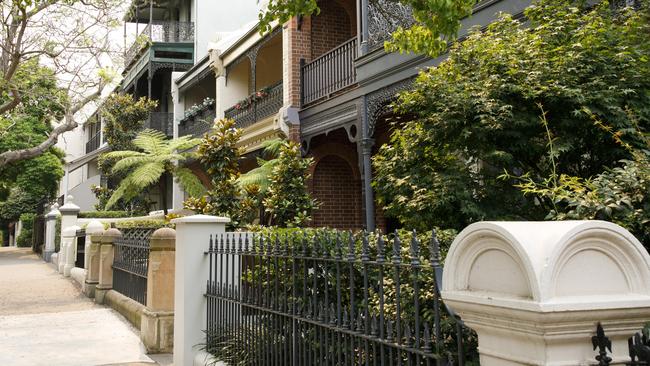Stimulus offers hope for property as steep price falls loom in Melbourne and Sydney
First home buyers may help but fears of price falls of up to 30pc in Sydney and Melbourne could still play out, analysts warn.

The coronavirus crisis is ripping through housing markets around Australia but stimulus packages should bolster buying by first home buyers, even as they deal with economic turmoil, analysts say.
Housing and auction markets have been hit hard by the immediate impact of lockdowns and forecasts of a deep recession, with analysts predicting deep falls, partly as migration inflows are reduced by border closures, and also as unemployment rises.
Louis Christopher, managing director of property researcher SQM, says housing prices are making an “orderly decline”, mainly in Sydney and Melbourne, as banks have held off on forcing sales, although they may pull back on lending.
The housing market fell by about 15 per cent in the wake of the global financial crisis and Mr Christopher said these cities could this time be hit by price falls of up 20 to 30 per cent.
Mr Christopher said the scenario of large falls, first laid out in April, could still play out.
“The probabilities have increased, particularly in Melbourne for that to play out, and potentially Sydney as well,” he said, although he added that Sydney may find its way through the crisis.
Mr Christopher said the major concern with the second wave of the coronavirus was how it hits businesses.
“We think many of those businesses are not going to make it through a second wave,” he said, warning of a hit to employment.
“There is definitely a negative correlation between higher unemployment and lower housing prices,” he said.
Stimulus packages could partly determine the depth of any falls.
Apartment boom over?
Morgan Stanley analysts Lauren Berry and Simon Chan said the HomeBuilder grant would likely result in a flurry of interest in the new house and land segment, as buyers also took advantage of state-based housing schemes.
They said history had shown that buying activity peaks just prior to the cessation of stimulus, and then drops, before going back to more normal levels.
Morgan Stanley also warned a migration slump due to short term border closures, as well as the potential for longer-term changes in net migration patterns, which could alter the overall demand for housing in Australia.
They noted a shift to detached housing and away from apartment projects, saying it was tough to see a return to the days of the unit boom, partly because of more disciplined lending by banks but also because people will more likely appreciate more space and home amenities.
Morgan Stanley found that the HomeBuilder package will stimulate the highest level of activity in lower-value properties – worth below $600,000 – given the higher level of incentives available for these purchases.
The biggest impact would be in Western Australia and Queensland, given that average values in these states are closer to these levels compared to higher prices in NSW and Victoria.
Morgan Stanley said one criticism of the government‘s HomeBuilder package has been that it is not designed to encourage new buyers into the market, but rather just to “bring forward” purchasing activity.
Early feedback from developers had been consistent with this view, with the majority of new purchasers since HomeBuilder was announced being existing leads who had already been engaging with developers, the analysts said.
“As such, our concern is that once the stimulus package rolls off, we may see a slump in new buying activity, as many of these sales would have been brought forward into the HomeBuilder period,” the Morgan Stanley pair said.
Others thinking of buying after the package ends in December may look to delay their purchase, in anticipation of additional stimulus packages being announced.
“If we see a material slump in sales or building activity post the December 31 cut-off date, there is a chance that the government reviews an extension of the package,” Morgan Stanley said.
Rising unemployment could affect purchasing activity but Morgan Stanley said that, counterintuitively, there was very little evidence that increasing unemployment results in a slowdown in property transactions.
“In fact, in most instances over the past 30 years where unemployment has increased, this has also been matched by a rise in housing turnover, as measured by finance approvals. While a portion of this turnover may be explained as distressed sales, the widespread and consistent nature of transaction increases over these periods suggest that the housing market will not slow down simply because unemployment rises post-COVID,” the analysts said.






To join the conversation, please log in. Don't have an account? Register
Join the conversation, you are commenting as Logout